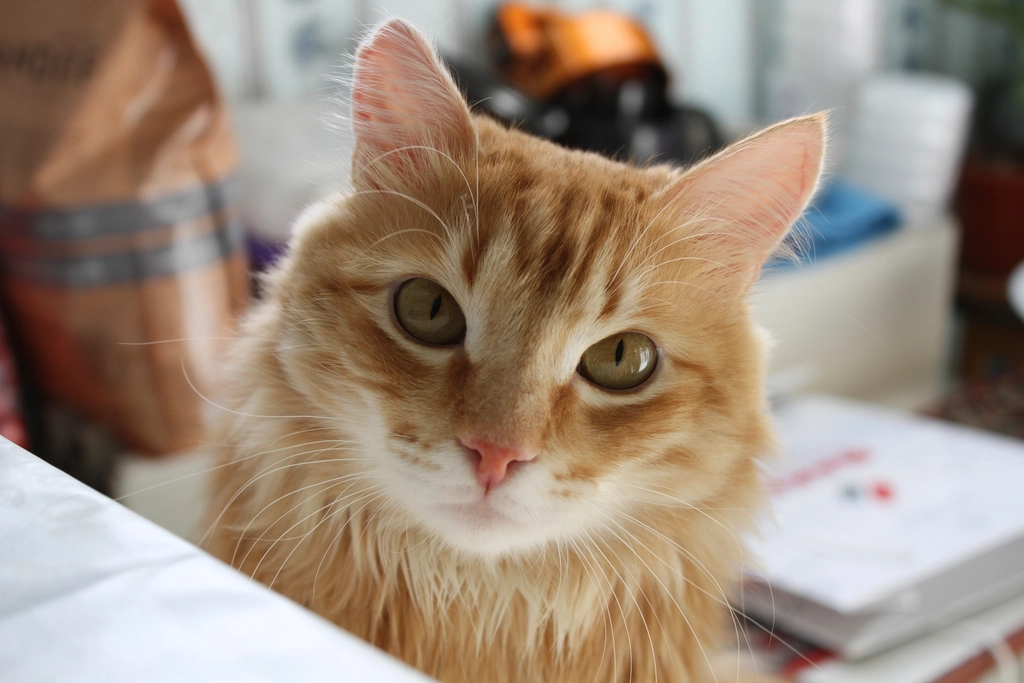Have you ever watched a cat stare out the window, tail flicking, totally content with nothing but the world passing by? There’s a quiet mystery to feline companionship—a gentle, unspoken bond that exists without pressure. Cats are experts at living in the moment, choosing connection on their own terms. But why do these enchanting creatures seem to favor relationships free from demands? The answer is both surprising and heartwarming, revealing a depth to our feline friends that most people never imagine. If you’ve ever wondered why your cat curls up next to you some nights, but keeps their distance on others, you’re about to uncover the magic behind their unique brand of companionship.
The Nature of Feline Independence

Cats have been independent creatures for thousands of years. Unlike dogs, who descended from pack animals, cats evolved as solitary hunters. Their ancestors survived by relying on stealth and self-sufficiency, not on group cooperation. This independent streak remains deeply rooted in house cats today. When we watch a cat navigate its home, there’s a sense of quiet confidence—they don’t need anyone’s approval to feel secure. This autonomy is part of their charm and the reason many people feel cats are mysterious. It’s also why cats can be so selective about when and how they interact with us. Their preference for independence doesn’t mean they don’t love us—it just means they express it differently.
Companionship on Their Terms

Cats have a unique way of forming bonds with humans and other animals. Unlike dogs, who often crave constant attention, cats seek out companionship when it suits them. This selective socializing can be confusing for people who expect a pet to be always by their side. But for cats, choosing when to engage is a form of trust. When a cat decides to curl up on your lap, it’s a genuine offer of friendship, not an obligation. This freedom makes their companionship feel more special. It’s like having a friend who values quality over quantity, and who always knows when you need quiet company.
Emotional Safety and Boundaries

Cats are very sensitive to their environment and the emotions of people around them. They need to feel safe before they can open up to companionship. Unlike some pets that can handle rough play or constant handling, cats quickly set boundaries when they feel uncomfortable. If you try to force affection, a cat might simply walk away or give you a warning swat. This clear communication is their way of protecting their emotional space. When you respect these boundaries, your cat learns to trust you more. Over time, the relationship deepens, built on mutual respect and understanding.
Low-Pressure Social Interactions

One of the most delightful things about cats is their ability to just “be” with you. They don’t expect elaborate playtimes or energetic walks like dogs. Instead, they’re content to share a room, nap nearby, or gently rub against your leg. These low-pressure interactions create a peaceful atmosphere in the home. There’s never a sense of urgency or demand for your attention. This suits people who enjoy a quiet presence and don’t want to feel guilty for not entertaining their pet all the time. The relaxed vibe cats bring is one reason so many people find comfort in their company.
The Subtlety of Feline Affection

Cat affection is often understated. A slow blink, a gentle headbutt, or a soft purr are all signs that your cat cares about you. These gestures might not be as obvious as a dog’s wagging tail, but they’re just as meaningful. Cats show love in small, everyday moments, often when you least expect it. Sitting near you while you work, following you from room to room, or even just watching over you from a favorite perch—these are all ways cats say “I’m here for you.” The subtlety of their affection makes every sign feel like a little treasure.
Trust Takes Time

Building trust with a cat isn’t something that happens overnight. It takes patience, consistency, and respect for their pace. Unlike some animals who bond quickly, cats need time to feel secure. They observe, test boundaries, and slowly open up. When a cat finally decides to trust you, it’s a profound moment. You realize that their companionship is a choice, not an obligation. This slow build of trust makes the relationship incredibly rewarding. Every step forward feels like a small victory, deepening the bond between you and your feline friend.
Freedom from Social Pressure

One reason cats thrive in relationships without expectations is their aversion to social pressure. They don’t respond well to being forced into interactions or routines. If you try to pick up a cat who isn’t in the mood, you’ll probably get a quick escape or a disapproving glare. This isn’t stubbornness—it’s an instinctive need for autonomy. Cats feel happiest when they have the freedom to choose how and when they connect. This lack of pressure creates a more genuine, stress-free companionship. It’s like having a friend who never judges you for needing space.
Observing Without Demanding

Cats are natural observers. They often sit quietly in a corner, watching the world go by without needing to participate. This quality makes them excellent companions for people who appreciate calmness and contemplation. Unlike pets who demand constant attention, cats are content to simply share your space. They listen without interrupting and watch without expecting anything in return. This silent support can be incredibly comforting, especially during stressful times. It’s as if your cat is saying, “I’m here if you need me, but I’ll give you room to breathe.”
Adaptability to Different Lifestyles

Cats are remarkably adaptable to a wide range of living situations. Whether you’re busy with work, have an unpredictable schedule, or enjoy a quiet home life, cats can adjust to your pace. They don’t require walks at specific times or constant supervision. This flexibility makes them ideal for people with varied routines. Cats can entertain themselves when you’re busy, but they’re always ready to share a peaceful moment when you’re available. Their ability to thrive without rigid expectations makes them the perfect companions for modern life.
Respect for Personal Space

Personal space is a big deal for cats. They value having places to retreat and relax without being disturbed. Whether it’s a cozy corner, a sunny windowsill, or a private hideaway, cats seek out spots where they can recharge. This respect for space extends to their relationships with humans. They appreciate it when we let them come to us, rather than chasing them down for cuddles. When you honor a cat’s need for space, you show that you understand and respect their individuality. This mutual respect is the foundation of a strong bond.
Mutual Understanding in Silent Communication

Cats communicate a lot without saying a word. Their body language, facial expressions, and even the way they move can tell you how they’re feeling. Over time, people who live with cats become experts at reading these subtle cues. You learn the difference between a contented purr and an annoyed flick of the tail. This silent conversation creates a deep sense of understanding between you and your cat. There’s a special satisfaction in knowing what your cat needs without them ever having to ask.
Embracing Authenticity

Cats are unapologetically themselves. They don’t hide their moods or pretend to be something they’re not. If they’re happy, you’ll know. If they need space, they’ll take it. This authenticity is refreshing in a world where people often feel pressured to act a certain way. Cats teach us to embrace our true selves and to be honest about our feelings. Their companionship feels real and unforced, making every shared moment more meaningful.
The Joy of Quiet Moments Together

Some of the best memories with a cat are the quiet, ordinary moments—reading on the couch with a purring cat beside you, or sharing a peaceful morning by the window. These moments don’t require words or grand gestures. The comfort of simply being together is enough. Cats remind us that companionship doesn’t have to be loud or demanding. Sometimes, the quiet presence of a friend is the greatest gift.
Learning Patience from Feline Friends

Cats can teach us a lot about patience. Building a relationship with a cat means moving at their pace, not ours. Sometimes, you might wait weeks for a shy cat to come out of hiding or months for a nervous rescue to trust your touch. But when that breakthrough comes, it’s worth every minute. The patience you learn from living with cats can spill over into other parts of your life, helping you slow down and appreciate the process.
Why Routine Isn’t Always Necessary

Many pets thrive on routine, but cats are surprisingly flexible. While they appreciate regular meals and a clean litter box, they don’t need a strict schedule for play or attention. They’re happy to join in when you’re available, but they’re equally content to nap while you’re busy. This relaxed attitude makes cats easy to live with and reduces stress for their human companions. It’s a gentle reminder that life doesn’t always need to be planned out to be enjoyable.
The Importance of Choice

Choice is essential for cats. They want to decide when to eat, sleep, play, or interact. When a cat feels in control of their environment, they’re happier and less stressed. This need for choice is why cats are often more affectionate when they’re not pressured. Giving your cat the freedom to choose makes them feel respected and valued. It’s a simple way to build trust and strengthen your bond.
Respecting Differences in Personality

No two cats are exactly alike. Some are social butterflies, while others are quiet observers. It’s important to recognize and respect these differences. Trying to force a shy cat to be outgoing, or expecting a playful cat to sit still, only leads to frustration. When you celebrate your cat’s unique personality, your relationship flourishes. It’s like having a friend who loves you for exactly who you are.
Stress-Free Living Together

Cats contribute to a stress-free home by keeping things simple. They don’t demand constant entertainment or complicated routines. Their needs are basic—food, water, a safe space, and a little affection. In return, they offer calm companionship and a sense of peace. The absence of expectations makes it easy to relax around cats. Their laid-back attitude is contagious, helping you unwind after a hectic day.
Unconditional Acceptance

Cats have an incredible ability to accept people as they are. They don’t care about your job, your appearance, or how your day went. All that matters is that you’re there, sharing space. This unconditional acceptance is comforting, especially on tough days. A cat’s quiet presence can make you feel understood and supported, without saying a word. It’s a gentle reminder that love doesn’t always need to be loud or showy.
Lessons We Can Learn from Cats

Cats have a lot to teach us about relationships and life. They remind us to respect boundaries, value authenticity, and appreciate the little moments. Living with a cat means letting go of expectations and embracing companionship for what it is—a quiet, mutual understanding that needs no words. The joy of sharing your life with a cat isn’t about constant attention or grand gestures. It’s about finding happiness in just being together, on your own terms.

Linnea is a born and bred Swede but spends as much time as possible in Cape Town, South Africa. This is mainly due to Cape Town’s extraordinary scenery, wildlife, and atmosphere (in other words, because Cape Town is heaven on earth.) That being said, Sweden’s majestic forests forever hold a special place in her heart. Linnea spends as much time as she can close to the ocean collecting sea shells or in the park admiring puppies.






